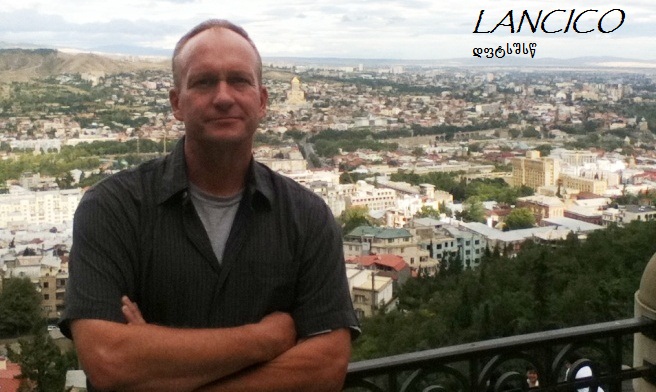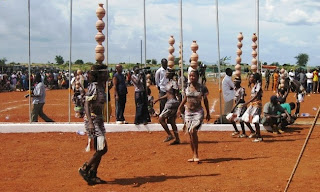Like many frequent flyers, I tend
to stay “loyal” to an airline mostly out of a desire for comfort and
predictability. This is where airlines
masterfully manipulate their customers through loyalty programs that promise great
benefits to those whose loyalty is greatest.
The fallacy with this is the fact that most of the “benefits” were
common features available to anybody just a few years ago. As a Delta frequent flyer, mostly overseas, I
get very comfortable with the lounge access, better seating, and of course the
early boarding thus securing overhead bin space.
After being used to
the “benefits” of status, it is sometimes difficult to embrace change. In my
case, it usually has to be forced on me by schedule or price. A recent trip to Rome from Tbilisi brought
about a revelation: Turkish Airlines is
my new most favorite airline. It also
brought another revelation: The Istanbul airport (Ataturk) is my new least
favorite airport.
The Turkish Airlines planes were new Airbus 319’s; Comfortable seating, easy boarding, nice flight attendants that
actually seemed happy to have a job, and most surprising… Great food. Meals were served on both the Tbilisi-Istanbul
leg (2 hours) and the Istanbul-Rome leg (2 ½ hours). The lamb chunks on rice were incredible for
airline food.
The only downside to Turkish Airlines is that
you normally have to connect through Istanbul Ataturk Airport (IST). What a mess.
Even though it is a major transfer point to destinations in Europe,
Central Asia, the Middle East, and Africa, the transfer process appears to be
completely made up as they go along. The
signage directs you to a security choke point that is about as organized as the
Grand Bazaar in downtown Istanbul.
Pushing, shoving, cutting in line, and a general disregard for personal
space is the order of the day.
Before hurling yourself into the security
gauntlet, you must first get your boarding pass for the transfer flight if (if
you don’t already have one). In a
microcosm of the Istanbul Airport, the clerk at the British Airways desk didn’t
speak English. In the interest of
reinforcing the irony, I say again… The clerk at the British Airways desk
didn’t speak English. I had to wait 45
minutes sitting on the floor near the transfer desk for an English speaking
attendant to show up. Then, he was
obviously annoyed and tossed me my boarding pass without a word being
spoken. Whether he spoke English or not
is still a mystery.
The
best fate you can have as a transfer passenger is either a short layover (2
hours) or a long one (over 7 hours). A
short layover will get you through the airport and on your way in constant
motion… eliminating the opportunity to pay $33 for 2 drinks in the bar. The food and drink are some of the most
expensive that I have experienced in any airport. Although the short layover is preferred,
watch out: Gate changes are only announced in Turkish so you have to be
prepared to run if necessary.
The
long layover gives you the opportunity to see one of the world’s great cities,
Istanbul. If you are an American
citizen, you have to buy a $20 visa to enter the country. Just get in the visa line and pay with
cash. Then store your carry-on bags at
the airport and catch a taxi to the Blue Mosque area (about $22). The bus is cheaper if you dare. There you will find two great landmarks: The
Blue Mosque and the Hagia Sophia. There
may be long lines at both so be prepared to wait or just wander over to a local
café for a doner sandwich and a cold beer.
The donar is basically a Turkish gyro.
Lamb (or a mix of beef and veal) served on a pita bread with sauce and
vegetables. Too bad it’s normally served
with Efes, the Turkish beer, which is awful.
The
Hagia Sophia was built in the 6th Century as a home to the Orthodox
Patriarchy and was the largest church in Christendom until 1453 when the
Ottomans seized Constantinople and turned the church into a mosque. In 1931 it was converted to a museum. The Christian frescoes were restored and the
Muslim writing left intact.
The legendary Blue Mosque sits
across a park area and is well worth the visit.
Again, there is usually a line to enter, and you must abide by the dress
code. Veils and gowns are available to
women to adhere to the Muslim code.
Visitors are welcome and it is certainly worthy of your time.
With a few hours to spare, I
took one of the open-top tour buses for a 3 hour bus tour of Istanbul. Although a little cheesy, it was worth the
time. Istanbul is a huge city and it
gave me the chance to see more of the city than I ever could on foot. This particular bus crossed the Bosphorus and
into the Asian side of the city.
Another taxi ride and I was back
at the airport. Make sure you tell the
driver which airport you are going to (Ataturk) or you will end up with a very
expensive ride to the wrong airport.
Entering the security gauntlet and wandering to the gate, I was tired
but happy with the visit. I was mostly
relieved because I knew I would be heading home on a great airline with decent
food that seems to appreciate my business… Turkish Airlines.


































.jpg)


